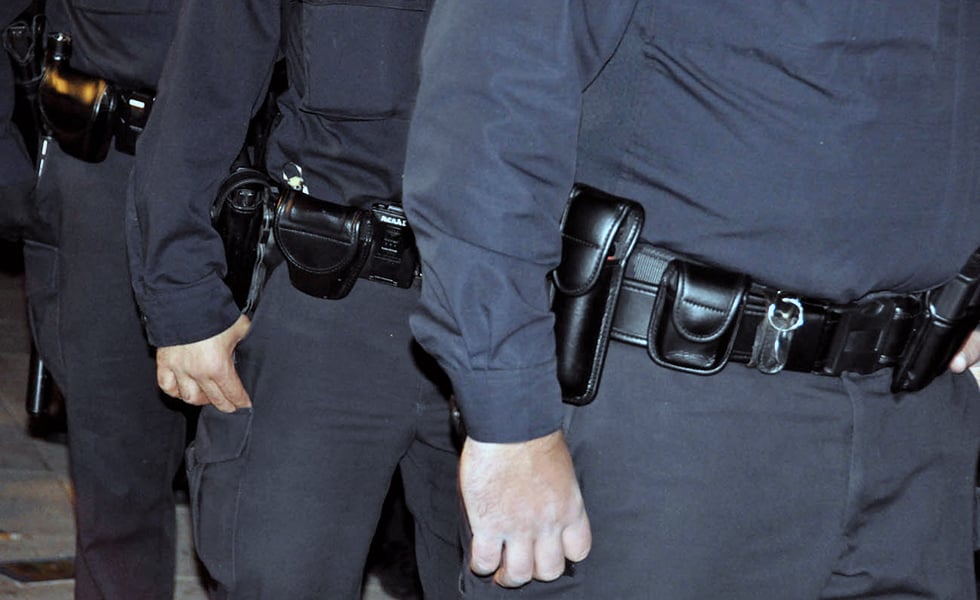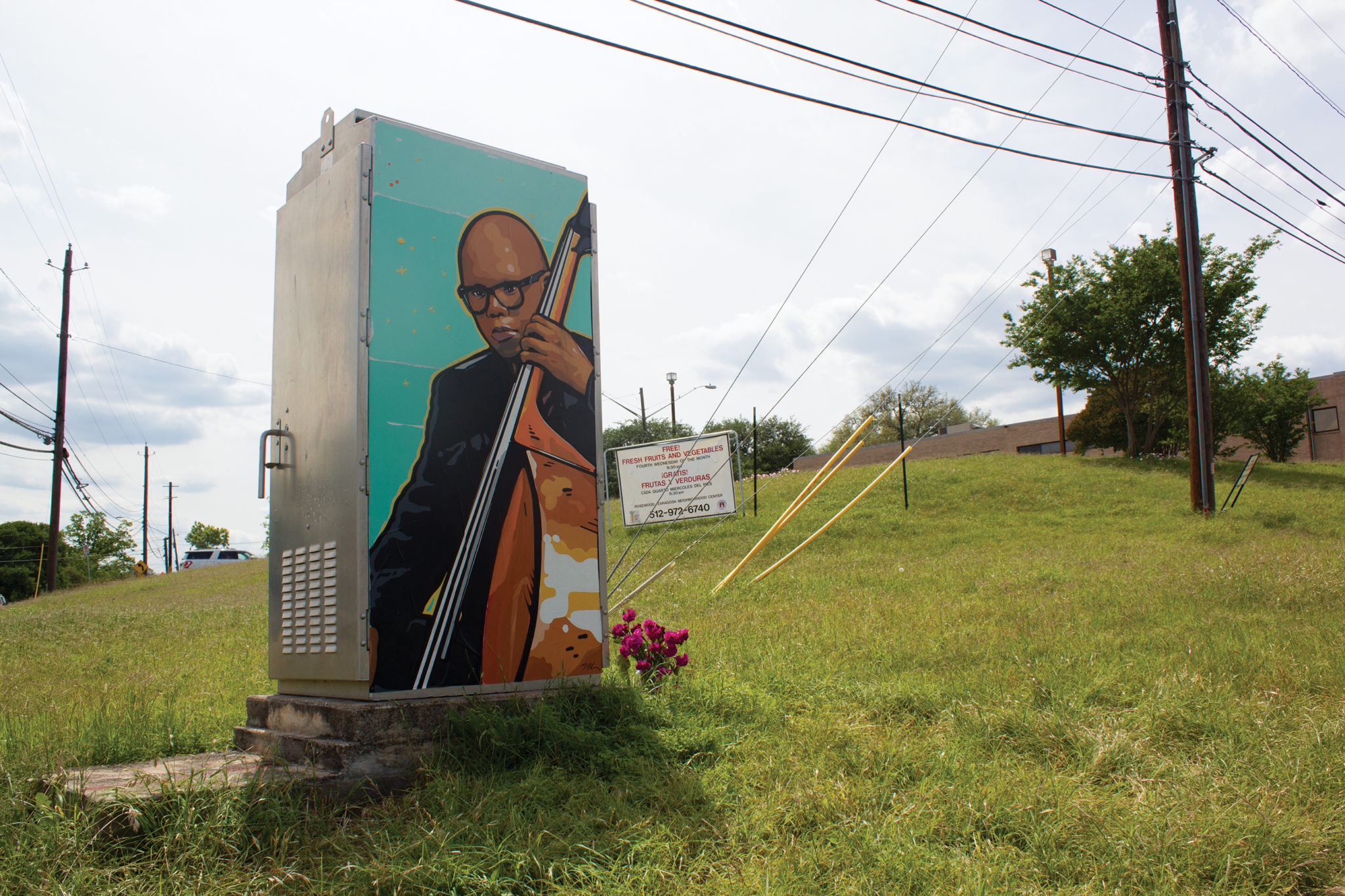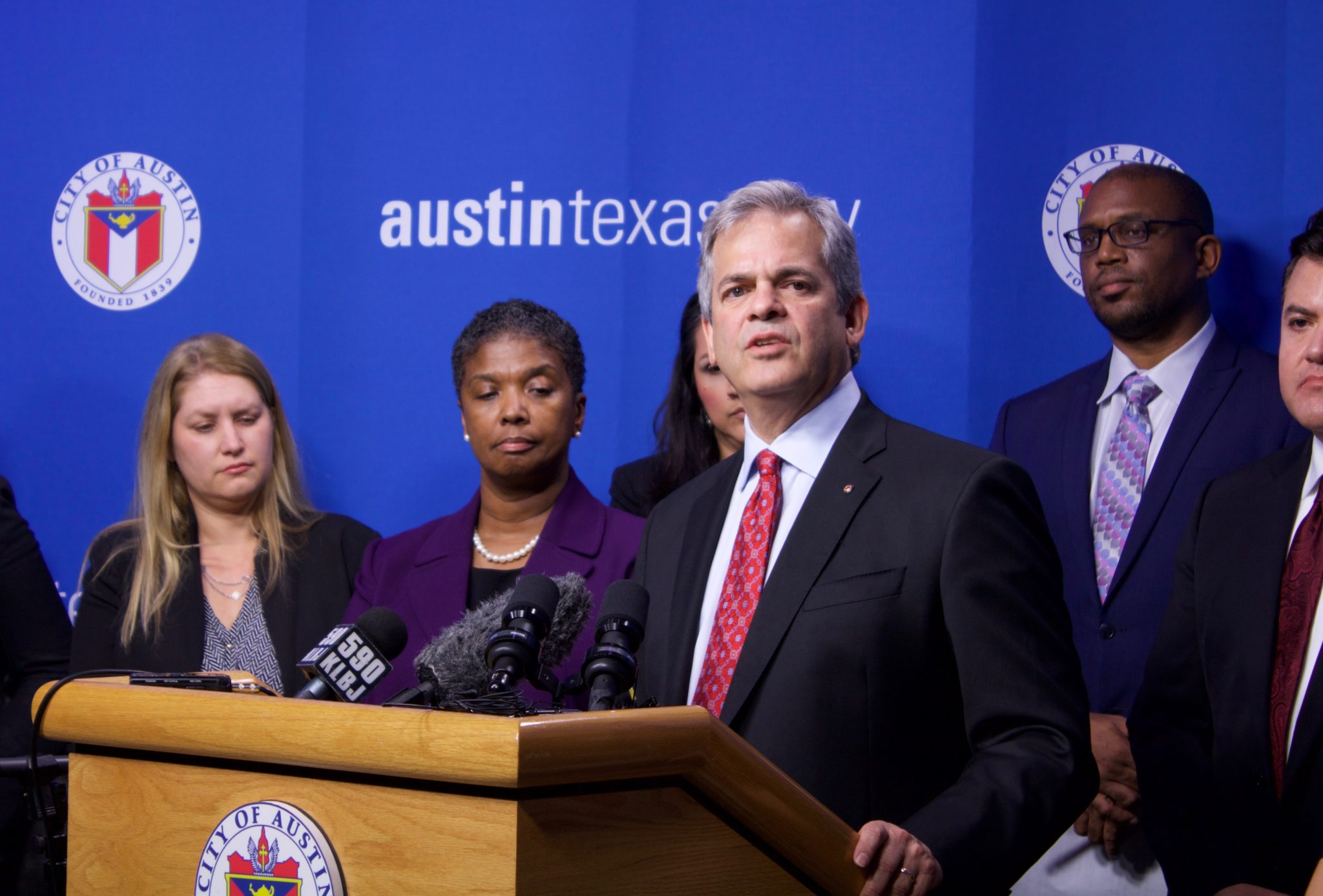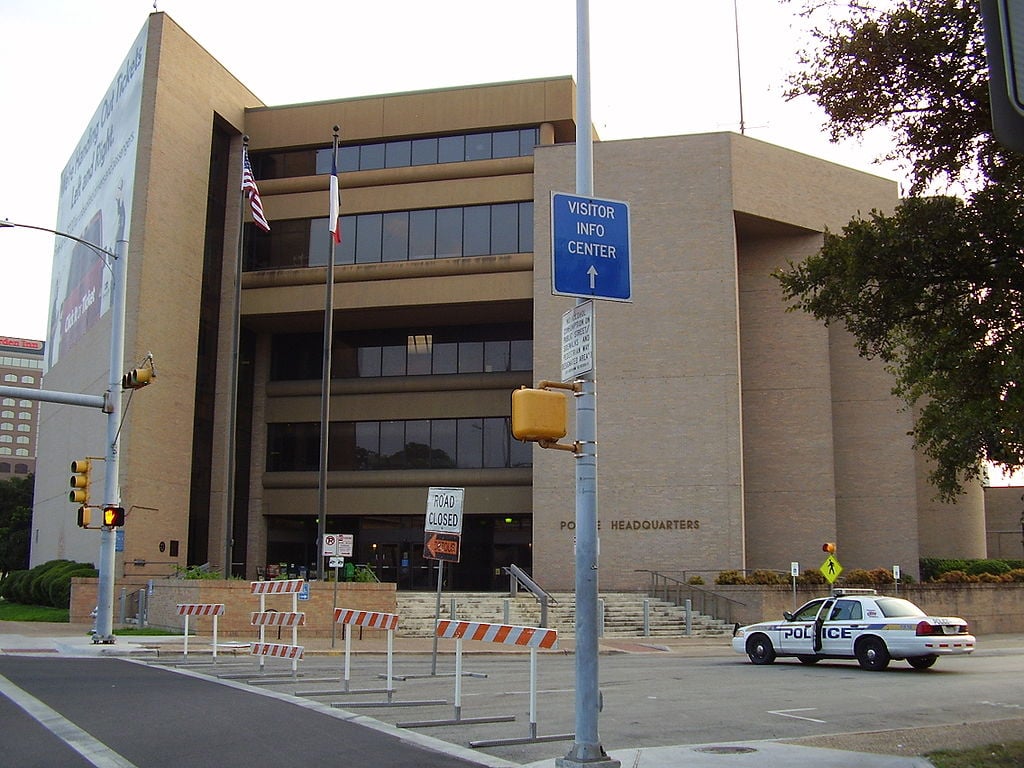
A Top Cop Accused of Racism Forces Austin to Confront Bias in Law Enforcement
Austin isn’t the only Texas city where trust between police and communities of color has frayed this year.
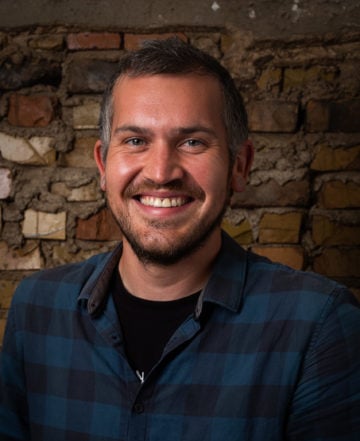
Above: The police headquarters in downtown Austin.
In late October, Assistant Chief Justin Newsom abruptly resigned from the Austin Police Department after 23 years on the force. Newsom, who oversaw the department’s downtown operations, quit the same day someone filed an anonymous complaint accusing him of using racial slurs: to refer to black officers, a fellow assistant chief who was black, a black city council member, and even Barack Obama when the president landed in Austin. According to the complaint—filed with the city’s Office of Police Monitor—the department’s leaders, including Police Chief Brian Manley, “were made aware of AC Newsom using the extremely derogatory term ‘nigger’ and failed to report it for investigation or review.”
The notion that an openly racist cop could rise to the top of the department has led to soul searching in Austin, a city with outwardly progressive politics but a history of racist policing. After Newsom’s departure, other complaints within the Austin Police Department started to surface. African American officers decried the lack of diversity within APD leadership; one complaint claims Manley approved of APD’s chief of staff forcing a family member into “conversion therapy” (the abusive and pseudoscientific practice of trying to change someone’s sexual orientation); another assistant chief stands accused of disparaging Latinx officers.
At a meeting Thursday night, Austin city council members said the fallout from Newsom’s resignation had shaken their faith in the department. With a unanimous vote, they ordered an audit of the department’s cadet training materials and an outside investigation to root out “racism and other discriminatory attitudes, training, protocols, or procedures” at APD.
Austin isn’t the only Texas city where trust between police and communities of color has frayed over the past year. In October, African American community leaders in Fort Worth called for a federal investigation into the police killings of black citizens after a white cop shot Atatiana Jefferson, a black woman, killing her in her home. “This is historic and it’s systemic and we understand that racism is at the heart of this,” Kyev Tatum, a Fort Worth pastor, said at a news conference after Jefferson’s death. “We have lost trust in our police department.”
Jefferson’s death occurred just weeks after former Dallas police officer Amber Guyger, who’s white, was tried and convicted of murdering Botham Jean, an unarmed black man she gunned down in his own apartment after mistaking it for her own. While the shooting reignited calls for greater police oversight, the trial this fall underscored Dallas’ trust issues with law enforcement; among other things, prosecutors pointed to racist texts and Pinterest posts in which Guyger joked about killing people.
The revelations in Guyger’s trial followed other evidence of bias among cops in North Texas. This summer, the Plainview Project published a database of social media posts by police officers in Dallas, Denison, and other cities, which included Islamophobic comments, racist stereotypes, and jokes about police violence. At the time, Dallas Police Chief Renee Hall announced an investigation into more than two dozen police officers, but her office couldn’t provide an update on those cases when asked this week. Denison officials said one officer was issued a written reprimand while others were “appropriately counseled.”
Natasha Harper-Madison, the only black representative on Austin’s city council, said the claims that APD would tolerate racism from one of its top officers validates concerns about policing that she often hears from black and Latinx members of the community. Harper-Madison, who proposed the investigation into the department, said she hopes the city turns the scandal into an opportunity. “Pervasive, systemic racism is not an Austin-exclusive problem,” she said at Thursday night’s council meeting. “Everybody’s got a little bit of this illness, and it’s time for us to apply a massive dose of treatment.”
Read more from the Observer:
-
The Last Nurse in Memphis, Texas: Carole Ward, a former nurse practitioner, ran the only health clinic in a small town in the Panhandle until she retired in 2017.
-
Why I Started a Book Club in the Harris County Jail: Education programs make jails safer and reduce rates of recidivism when people reenter society.
-
The Fight to Make Austin Affordable: Austin is one of the most sprawling and segregated cities in Texas. A new land development code aims to change that.
